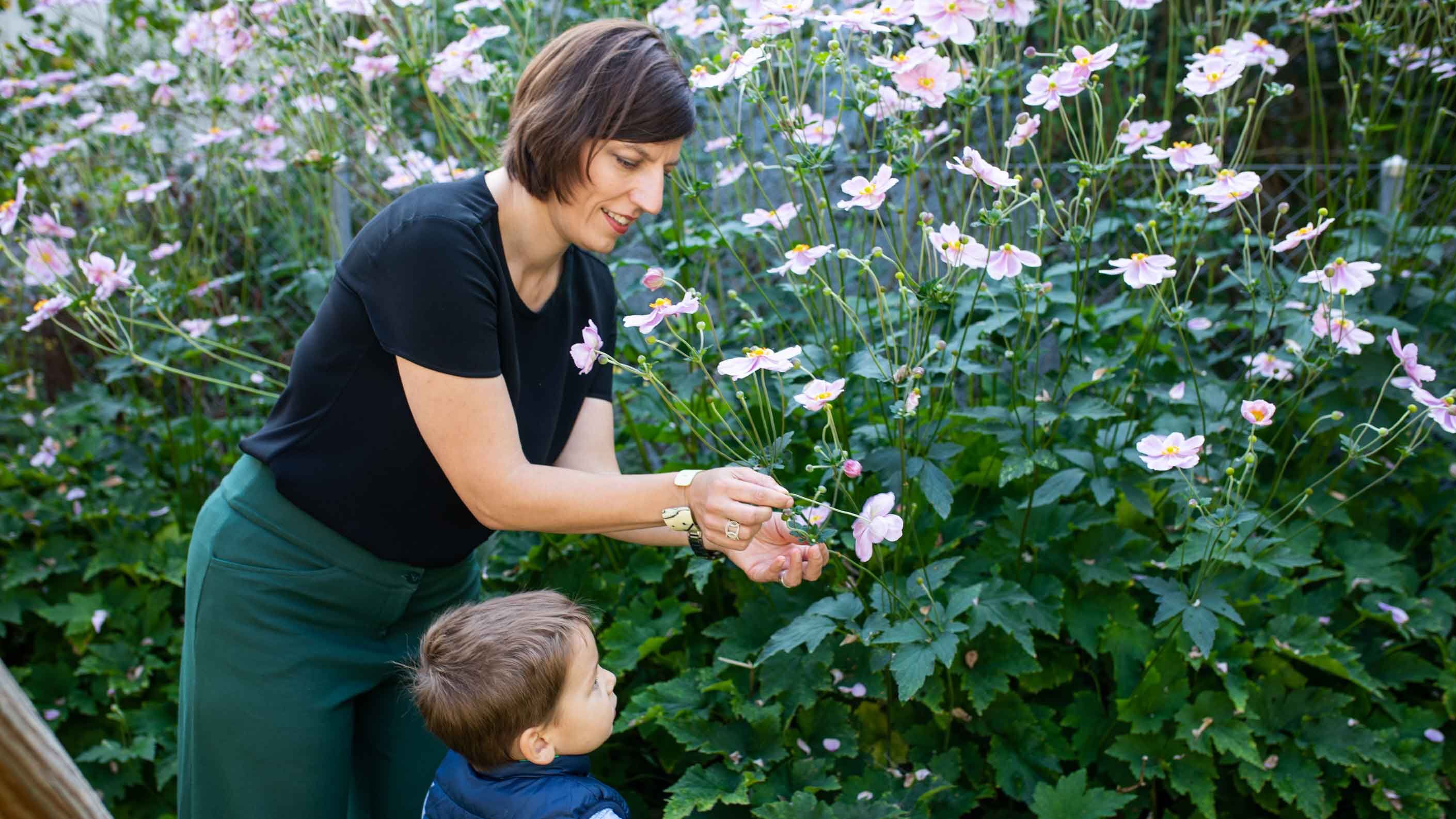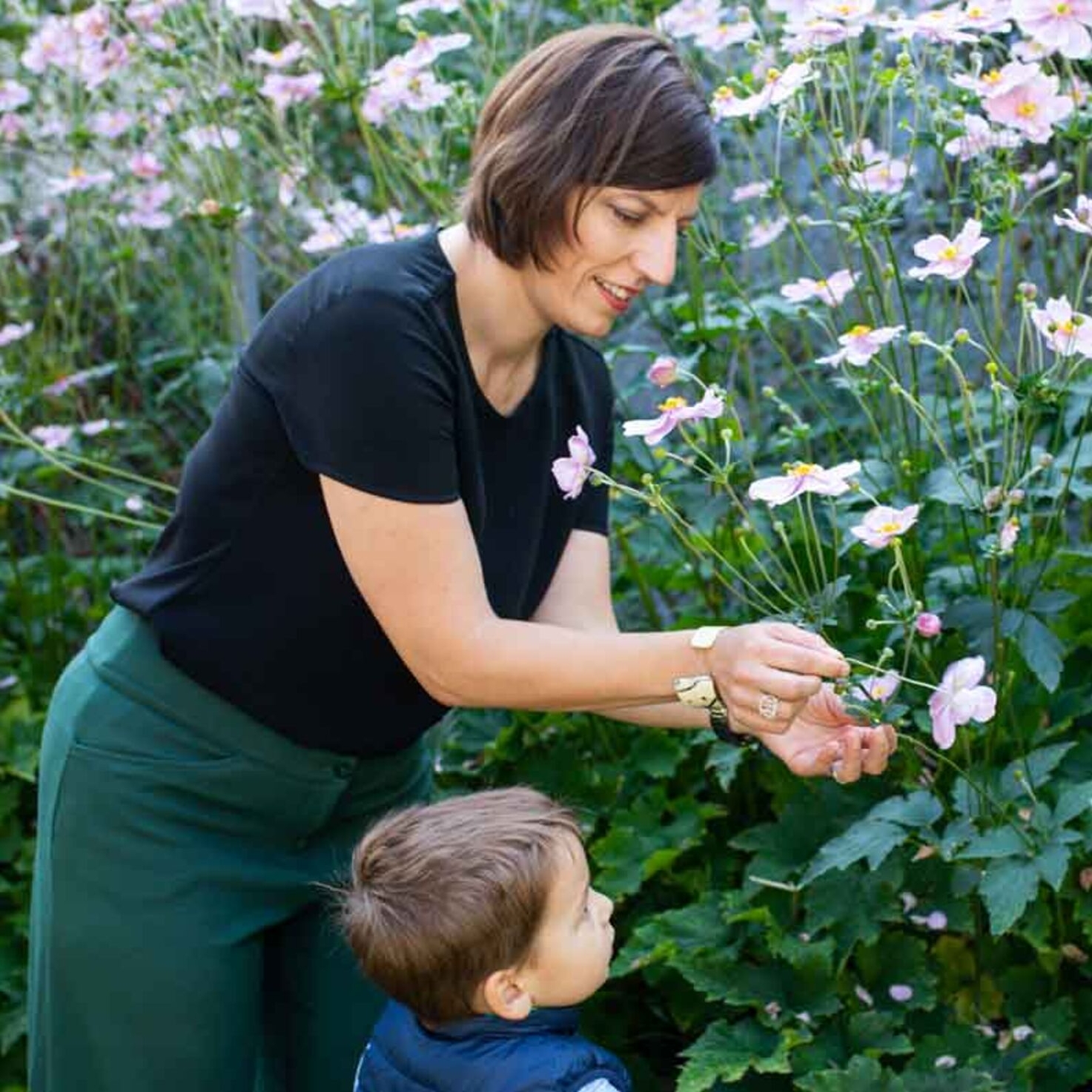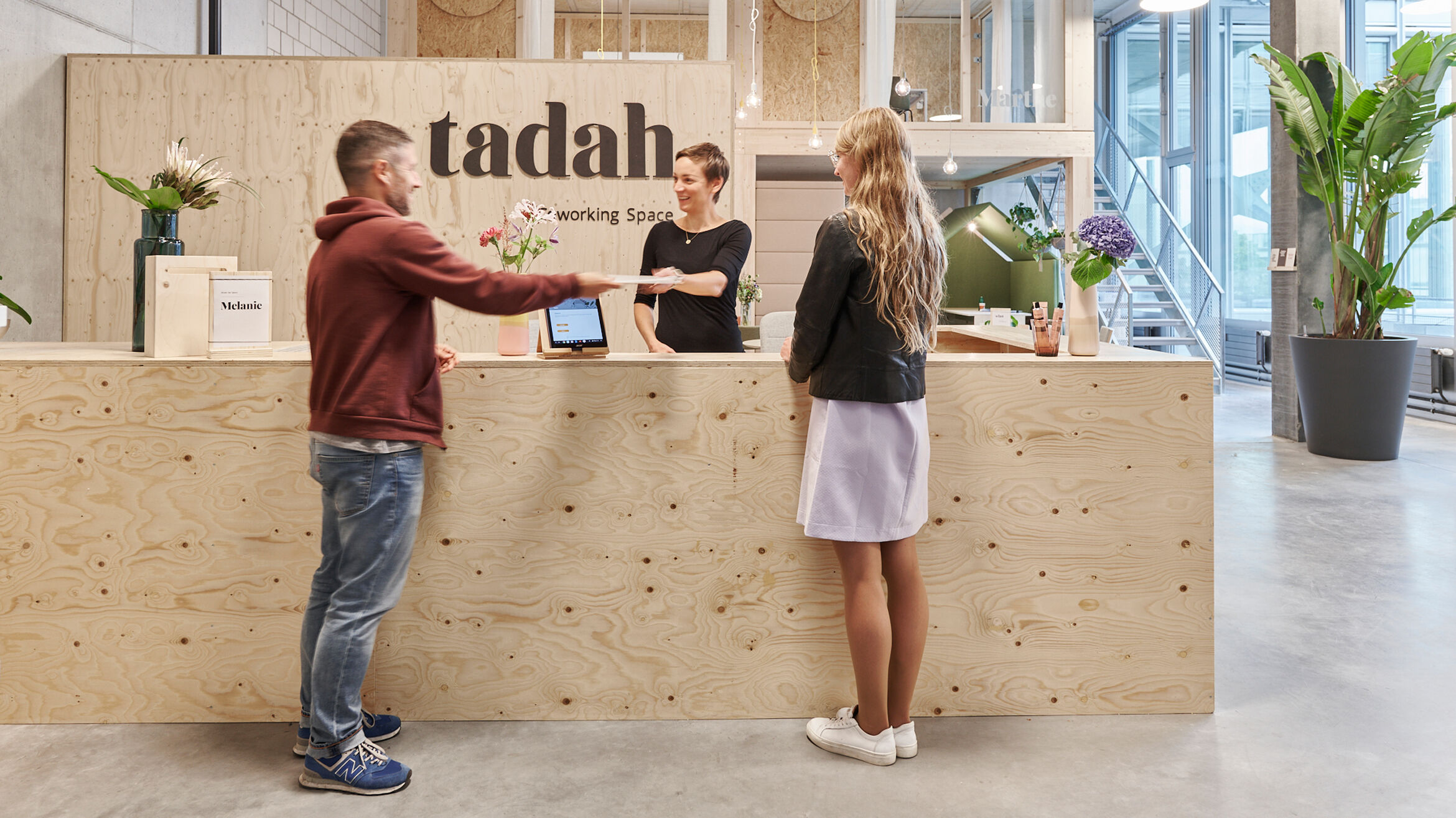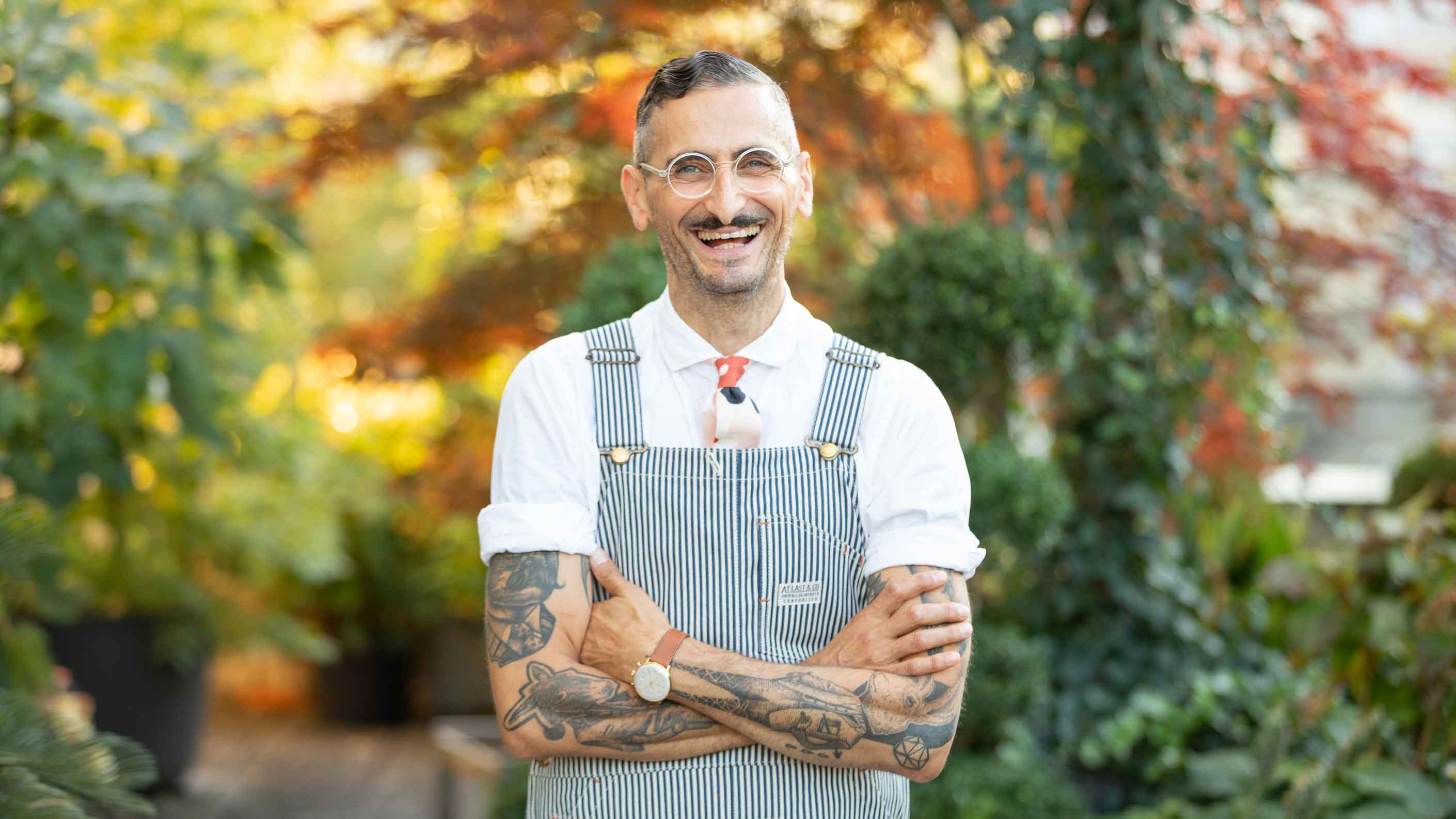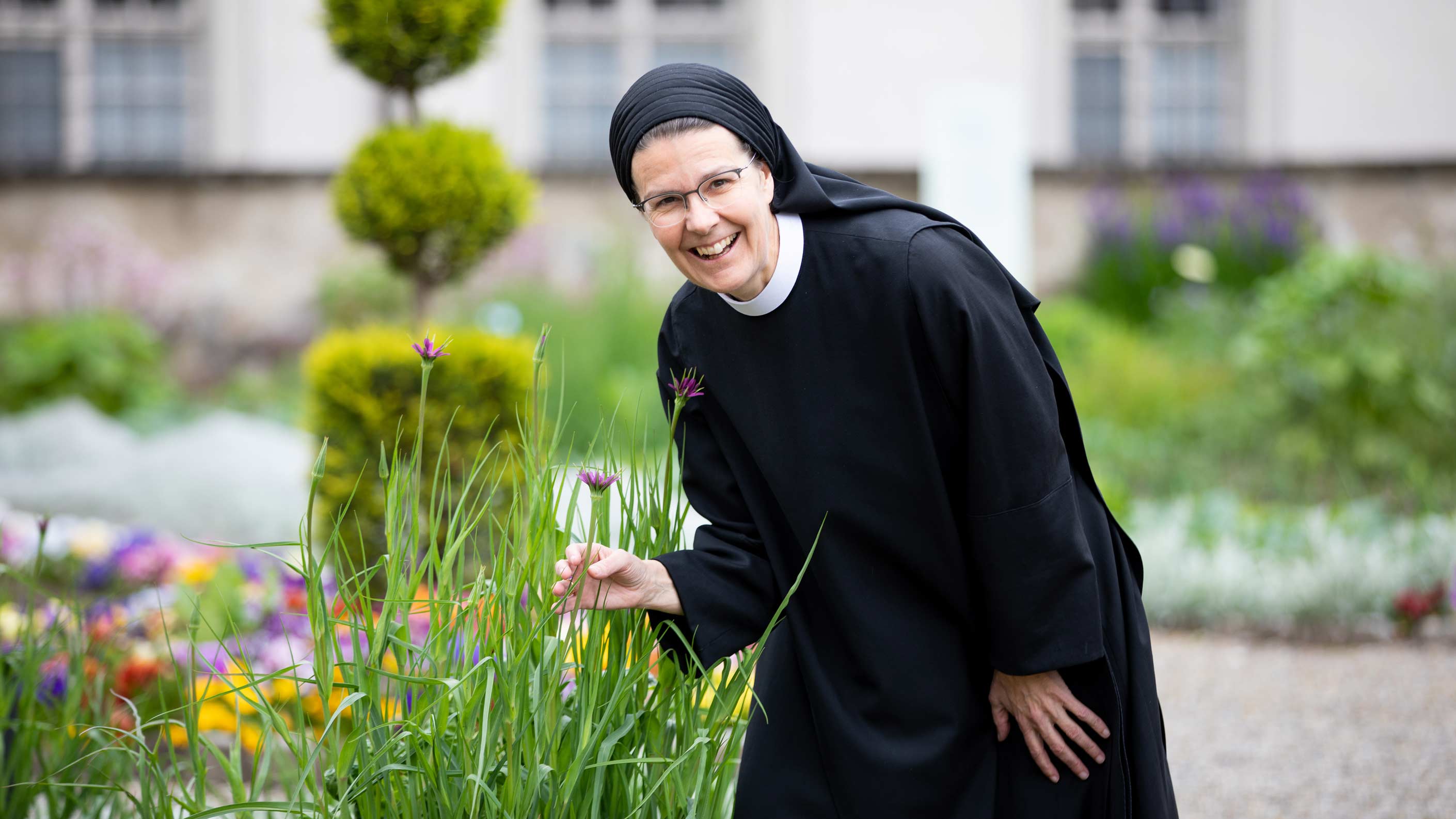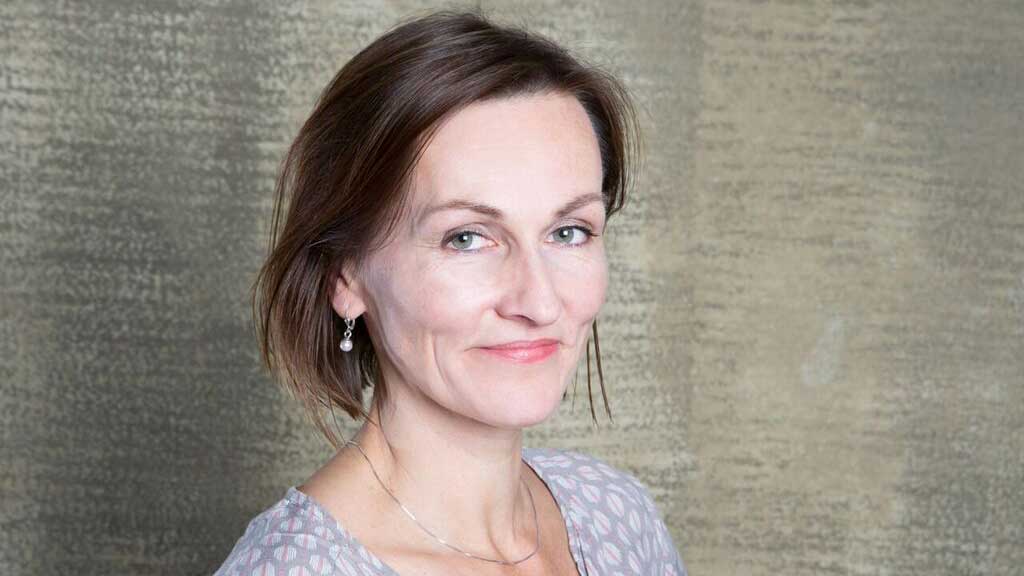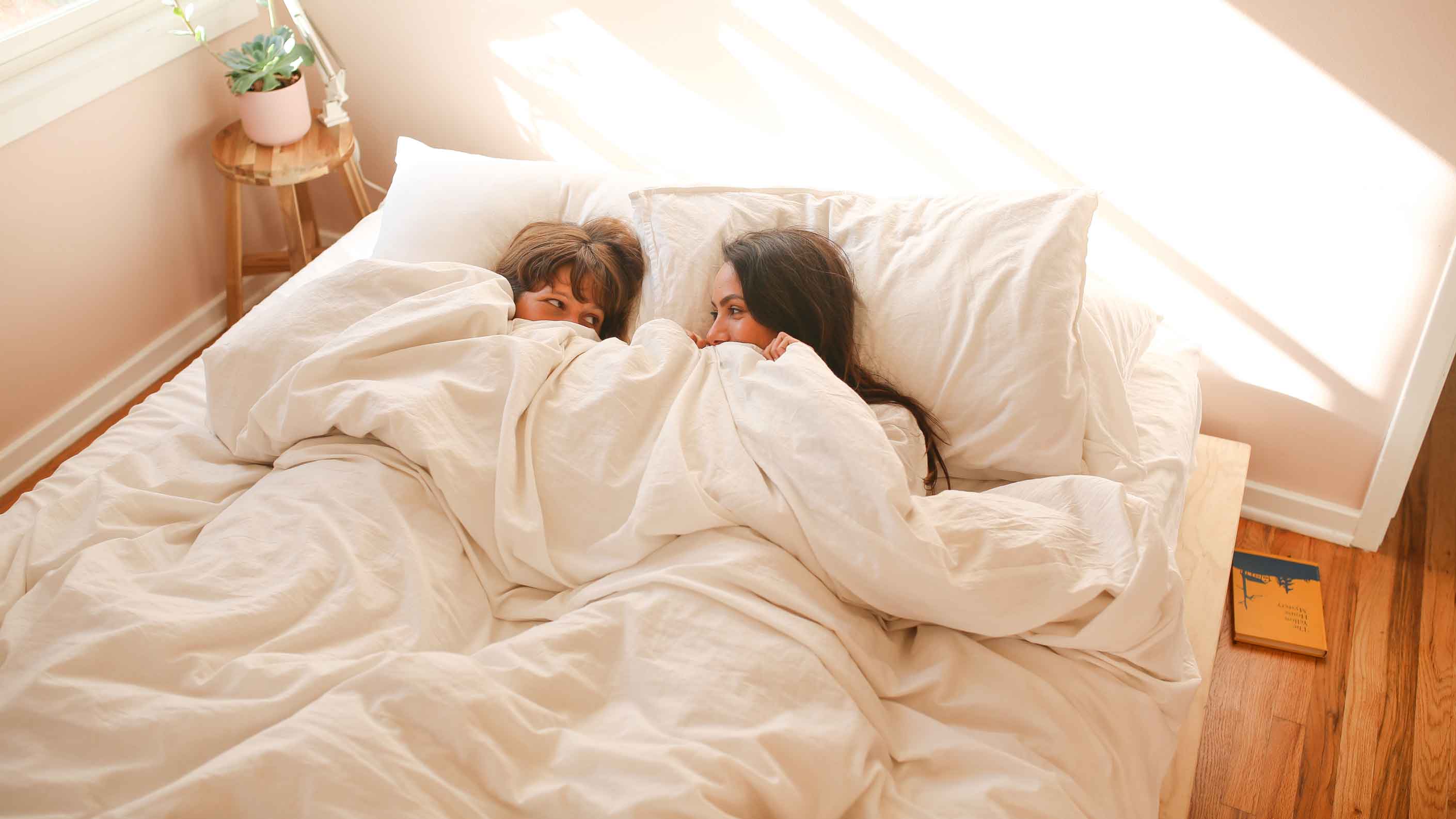People & Living | Parents We Love
This woman definitely wears the trousers
Sandra Grimmer didn’t just want to bring comfortable, stylish trousers onto the market. She also wants to make them in a truly fair and sustainable way. To this end, she plans to launch her trousers entirely according to the principles of the circular economy. And at the end of the trousers’ life, they will be broken down into their components again – including elastane – in order to obtain new high-quality yarn from them. A ground-breaking project.
Sandra, you have made a virtue out of necessity, or rather a pair of trousers. Tell us about it!
Before I had children, my wardrobe was divided into business and leisure. When I had children, the boundaries between the different areas of life, from the home office to the playground to household chores and meetings, became blurred. And so the demands I placed on clothes, and especially on trousers, changed a lot. Besides looking good, they simply had to do everything, not restrict my movements and be truly easy to care for. That’s how the idea for ‘trousers for life’ and also for establishing Seefeld.Style came about.
‘After a birth, trousers can be quite frustrating.’
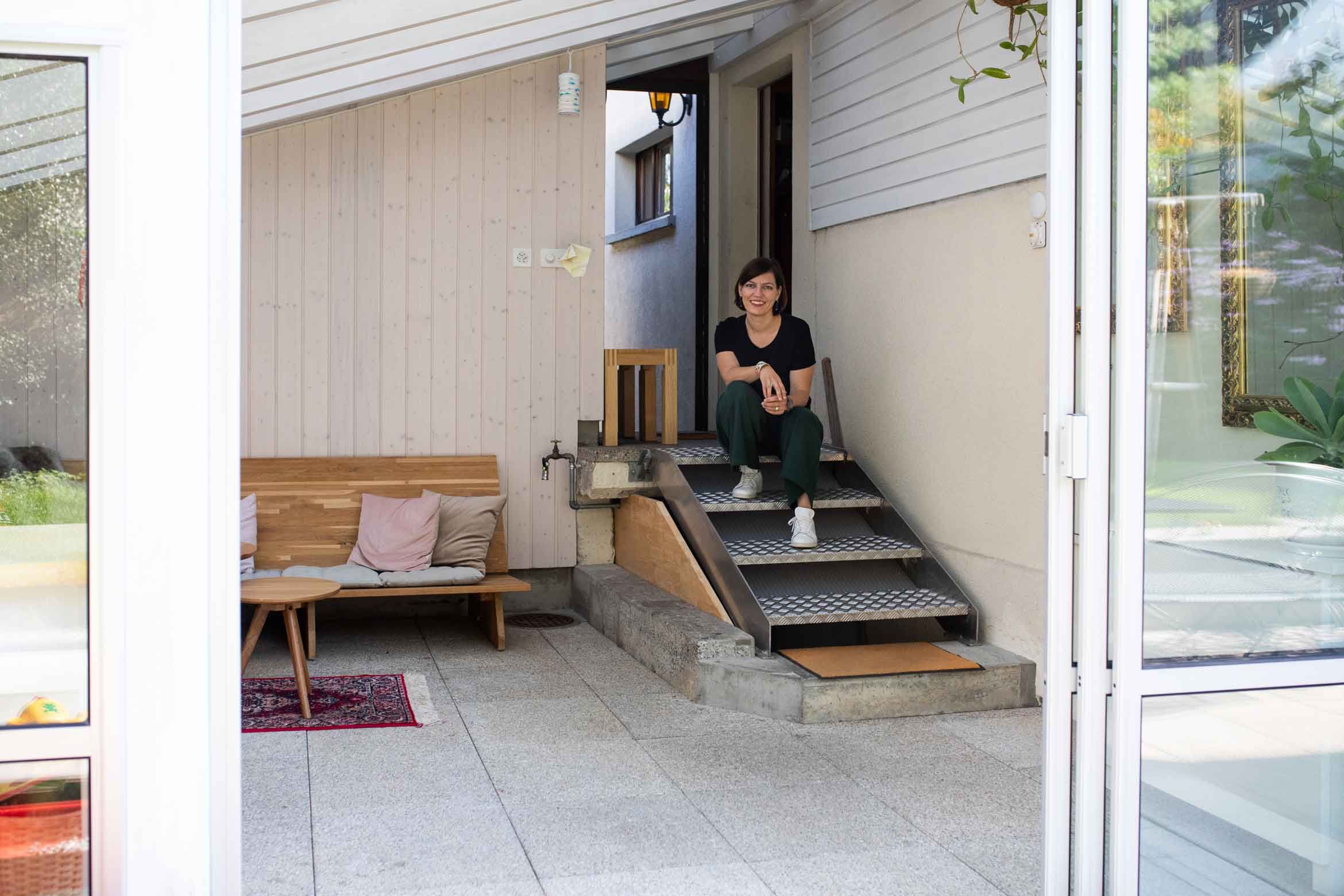
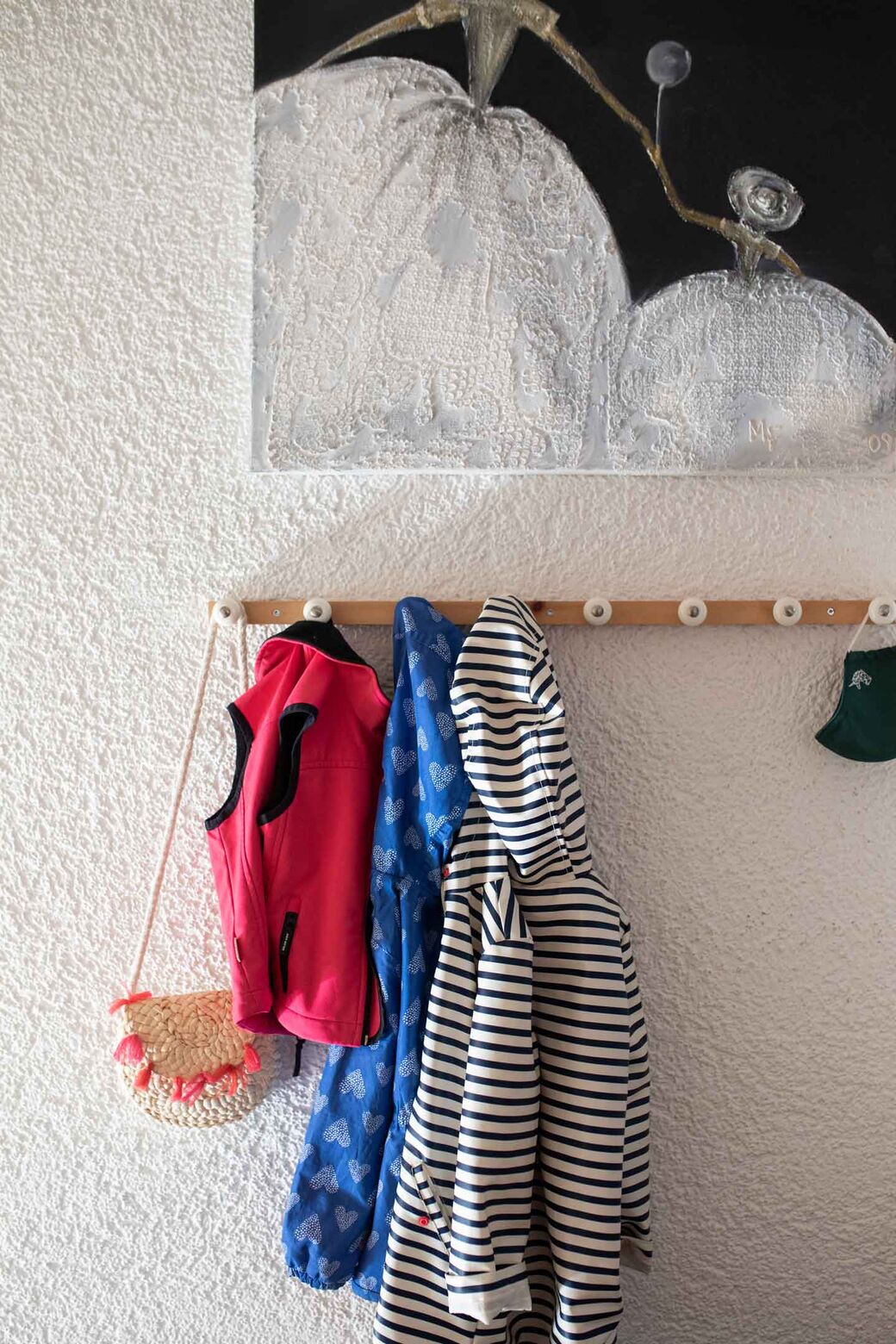
So the company came into being along with your first child, so to speak?
In a way, yes. After the birth of my daughter, not everything about my body was ‘as it used to be’ and trousers can be quite frustrating. Especially during times that are otherwise so challenging, it’s all the more important to feel comfortable in your own skin. That’s true at work just as much as when you’re crawling around after your kids on the floor. In short, my trousers do everything, are simple and flatter the figure.
That’s what happens to many mothers – they go on to have another baby during their maternity leave.
Yes, I thought it was cool that I could do something for my mind alongside looking after my daughter. Without this intellectual challenge, the ceiling would have quickly caved in on me at home. I am so grateful that my husband was so supportive. He took over the cooking and we shared childcare responsibilities, so I always had and still have time to look after my business in addition to being a mother.
‘It’s true that when you have a child you have to take a step back.’
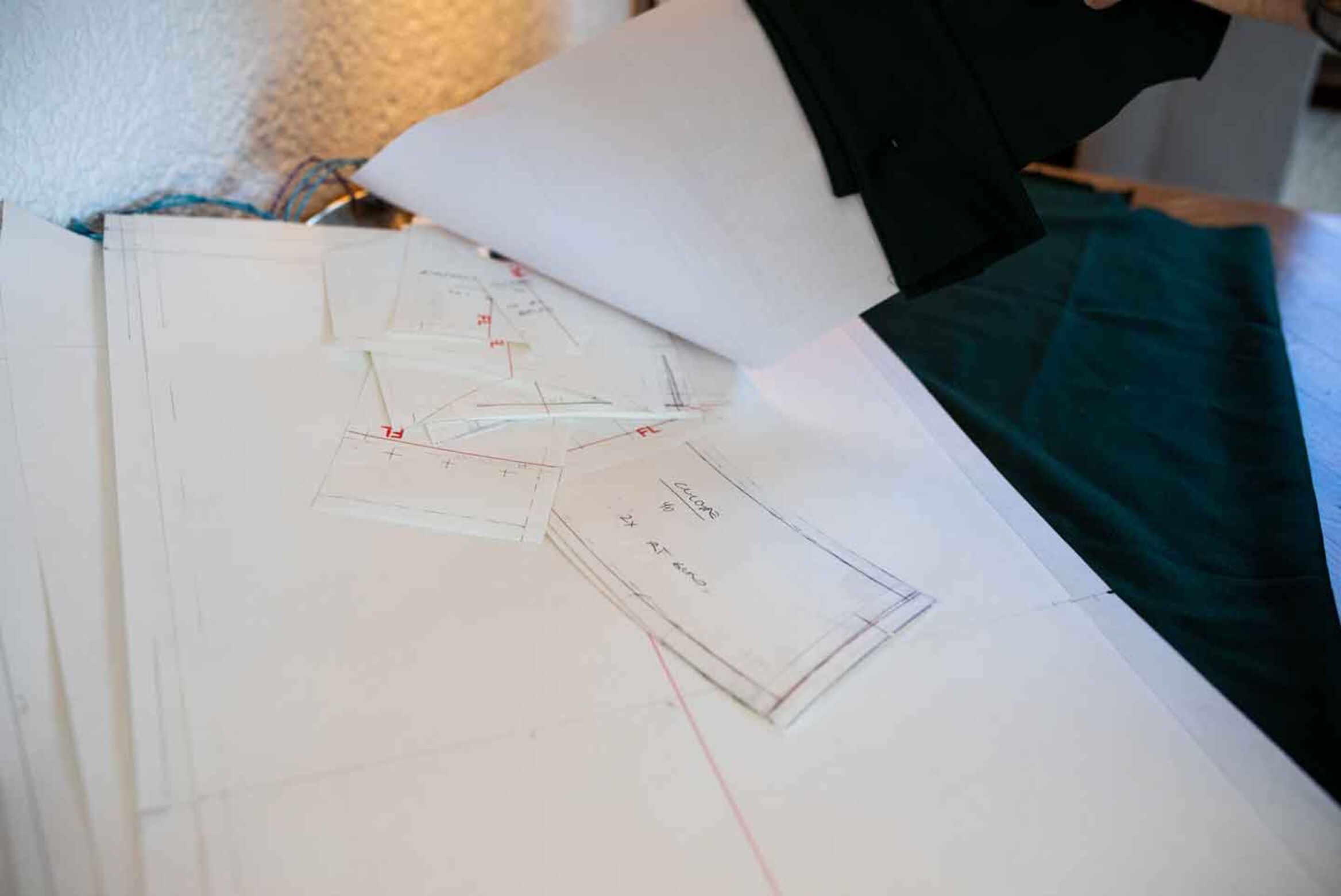
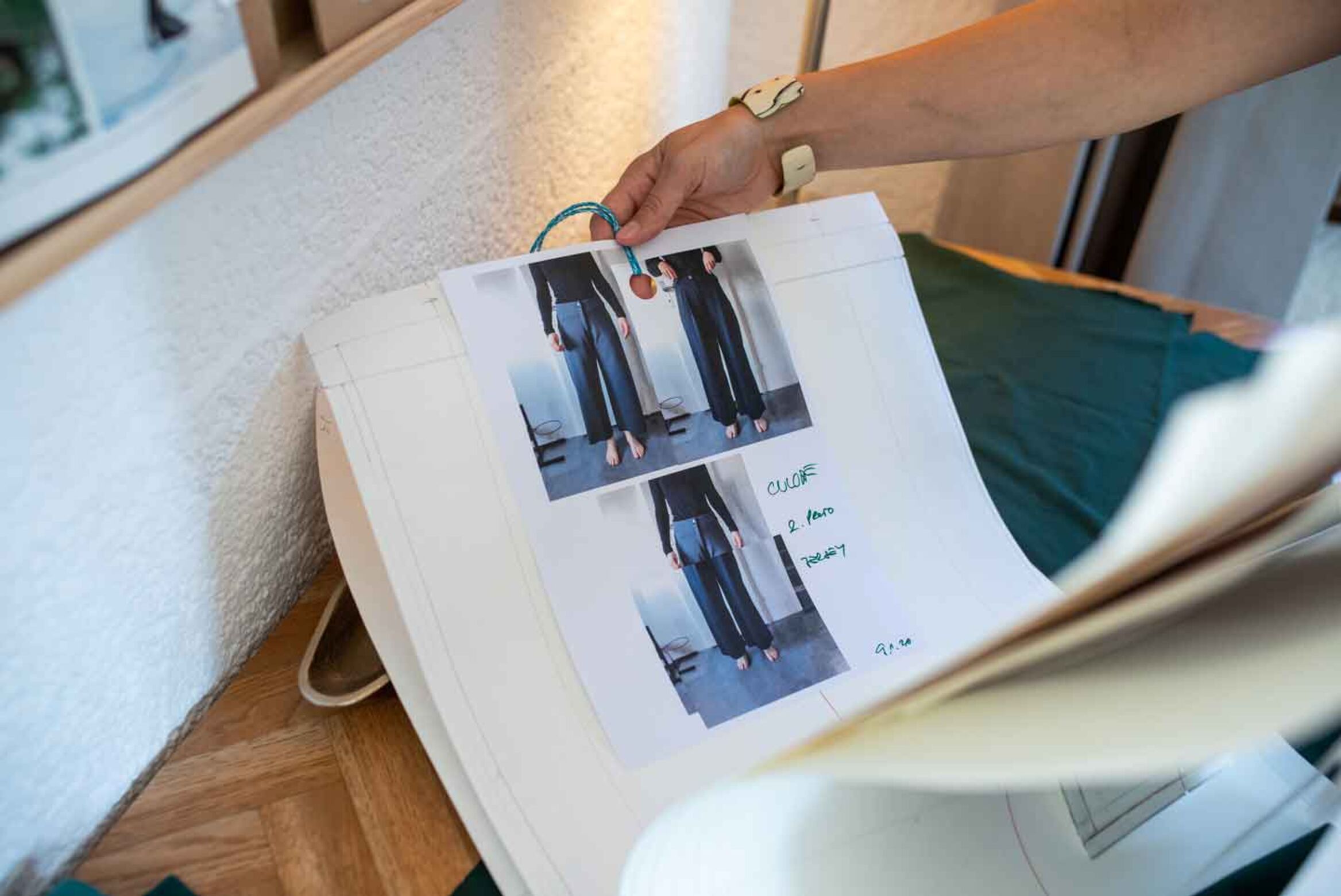
How has your first child changed you and your world?
I have become more patient and flexible. That’s what my husband says, in any case. But it’s true that when you have a child you have to take a step back. And that’s not always easy. The children’s well-being comes first and that means you make sacrifices, from how you spend your leisure time to perpetually child-friendly menus to nights off to looking after a poorly child with a fever. That’s all part and parcel of it. But then again, you enjoy those little moments when you can take a breather. For example, the first coffee with my husband before the children wake up and the daily madness starts all over again.
Kooperation
Bei Tadah dreht sich alles um die Vereinbarkeit – im Online-Magazin mit spannenden Interviews mit Eltern und im ersten Schweizer Coworking Space mit Kinderbetreuung. Ob mit oder ohne Kind – schaut doch vorbei auf tadah.ch. Oder direkt im wunderschön eingerichteten Space in Zürich Albisrieden.
‘Fast-fashion brands that launch a new collection every fortnight don’t have time to balance everything. We do it differently.’
Why are trousers probably the trickiest garment for women?
Not just for women. It’s also true for men. trousers that fit well, cut a nice figure and yet don’t restrict your freedom of movement are very hard to find. And most manufacturers aren’t that concerned about fit or comfort, but count on customers simply following fashion. Fast-fashion brands that launch a new collection every fortnight don’t have time to balance everything. But we prefer to make staples that you can buy again and again and that are guaranteed to be exactly the same as the first pair of trousers. What’s more, our trousers are truly sustainably produced, and will become even more sustainable: : We want to take our trousers into the circular economy. Old trousers become new, high-quality yarn at the end of their life.
You won the SBB Smart Emma vote – a pop-up store in Zurich’s main station – the dream of every designer and shop owner. And then the pandemic came along. What happened next?
As a fledgling label, we were of course thrilled to have won SBB Smart Emma. But the project was cancelled because of the lockdown, and we had to reinvent ourselves. That’s how the idea for Salon Privé came about. Salon Privé means private living room. And that’s exactly the kind of cosy atmosphere we create for our customers at our Salon Privés, each time at a different location.
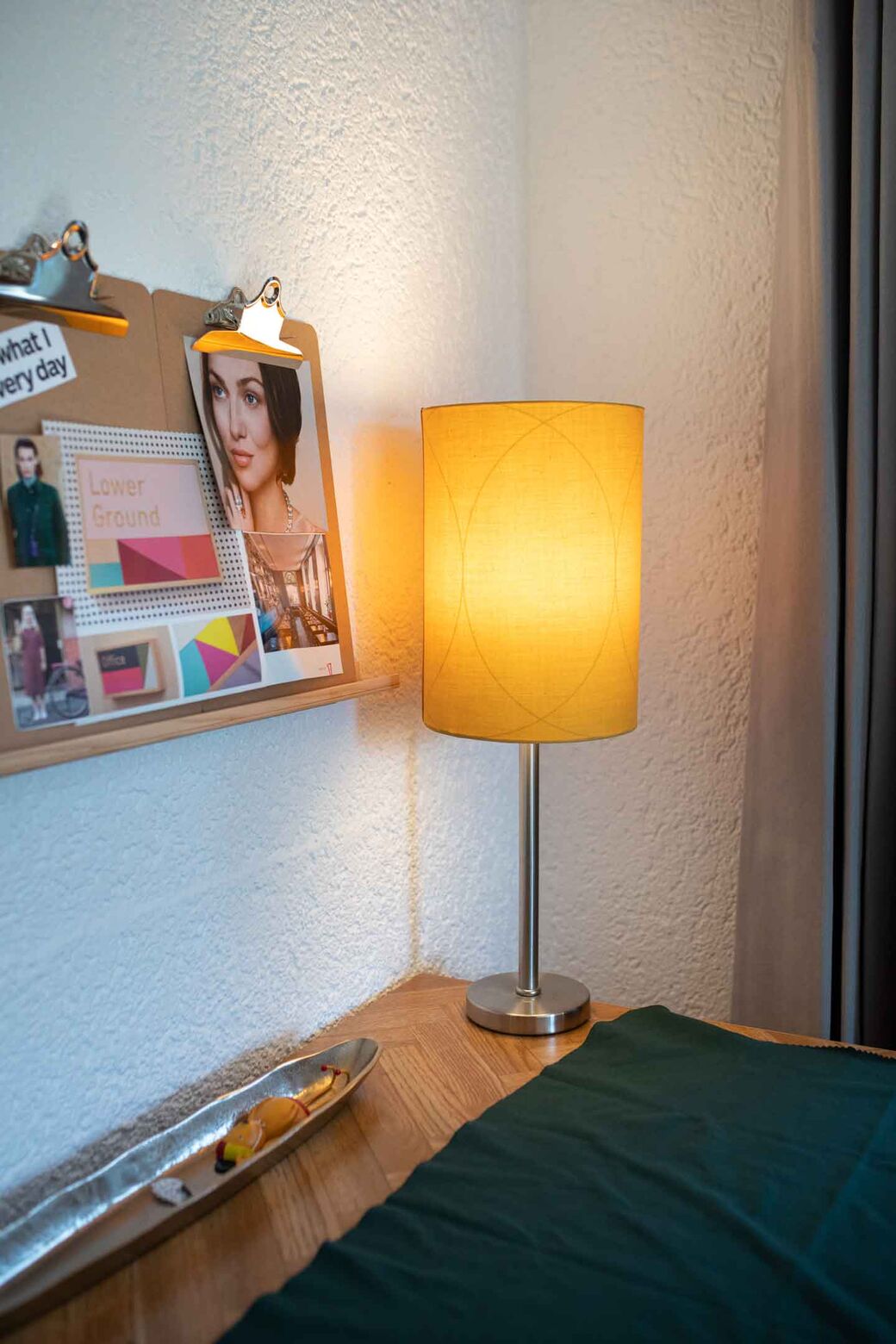
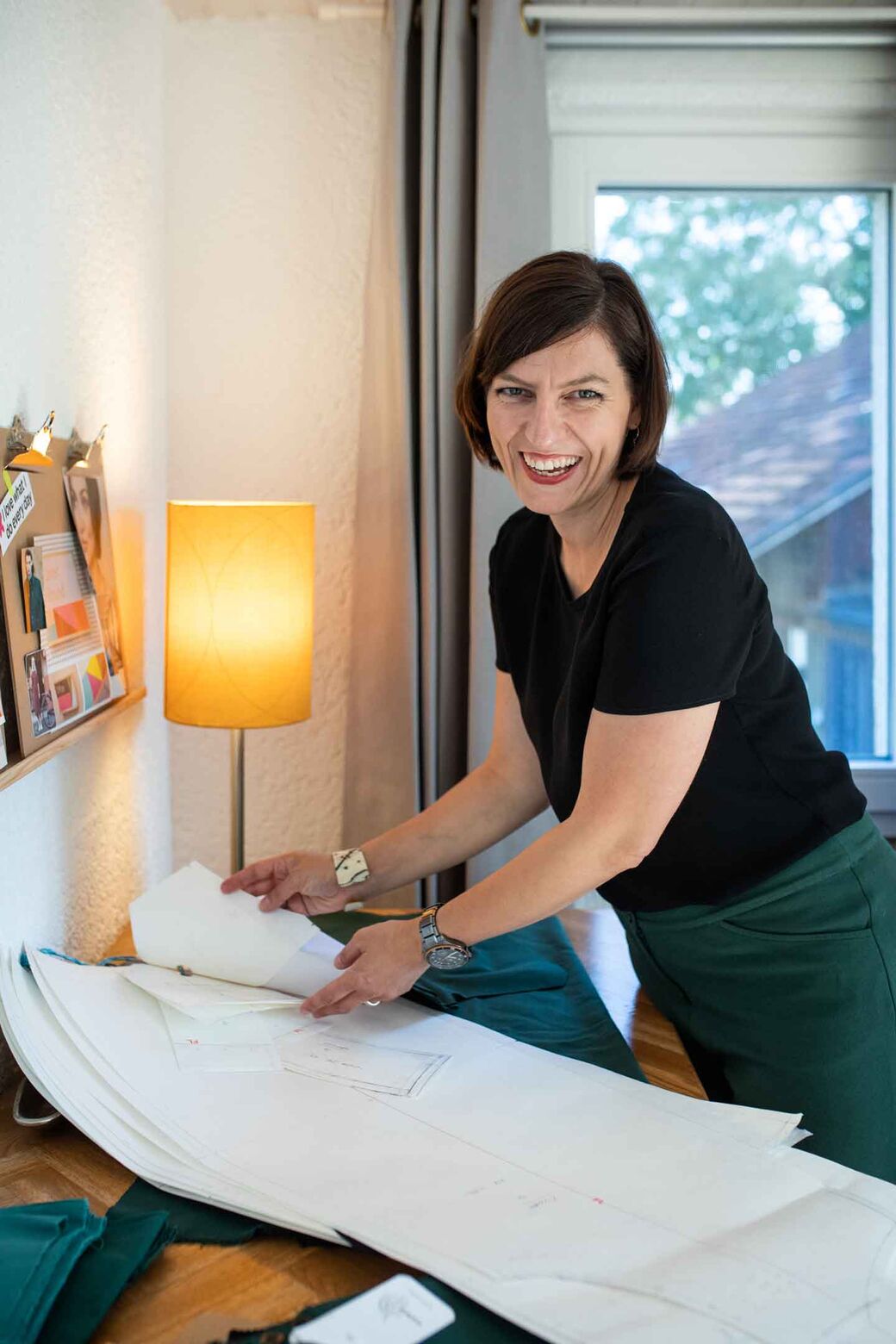
You are a mother of two children aged 4 and 3, you are a trouser designer and marketer and now you are setting up a circular economy company. So either you’re on the brink of collapse or you have some self-management secret we need to know about!
I certainly work a lot and hardly have any time for hobbies or me-time. My working hours aren’t fixed and the topics of conversation at the dinner table often revolve around work – even at the weekend. Work and free time aren’t separate, they’re interwoven. But it also feels natural. My work is part of my life. My husband, my sisters, my mother, the in-laws and many friends help us out. Of course, with children it’s often challenging in terms of organisation and logistics to juggle everything. But it all works in the end and the children don’t have to go without their mum. Incidentally, that’s how I was raised. My father was a self-employed toolmaker and my mother looked after the admin. The office was in the house and the workshop in the garage, so we were never away from our parents. For me, this way of life is the norm, not the exception.
‘I now have a goal that I have set and shaped myself.’
What do you need to work like this?
You have to forget about 9-to-5. You have to take life as a whole and be prepared to make decisions, sacrifices and stick to your principles. Perhaps my life isn’t as relaxed as it used to be, but it feels all the more meaningful to me because of that. I now have a goal that I have set and shaped myself. That’s what I get up for every day and that’s what I work towards.
So you’re committed to autonomy?
Oh, yes. For myself, just as for everyone else. That’s why it’s so important to me that our trousers are made in a fair and environmentally friendly way. Because the seamstresses and the other people involved in the manufacturing process also have a right to a life of dignity. And dignity can only be achieved through a self-determined life, never through dependence or exploitation of others or their livelihoods. This is one of the reasons why we don’t simply make stylish, well-fitting trousers or produce according to Oeko-Tex standards. We want to go beyond that and work in a truly sustainable way and introduce a circular economy.
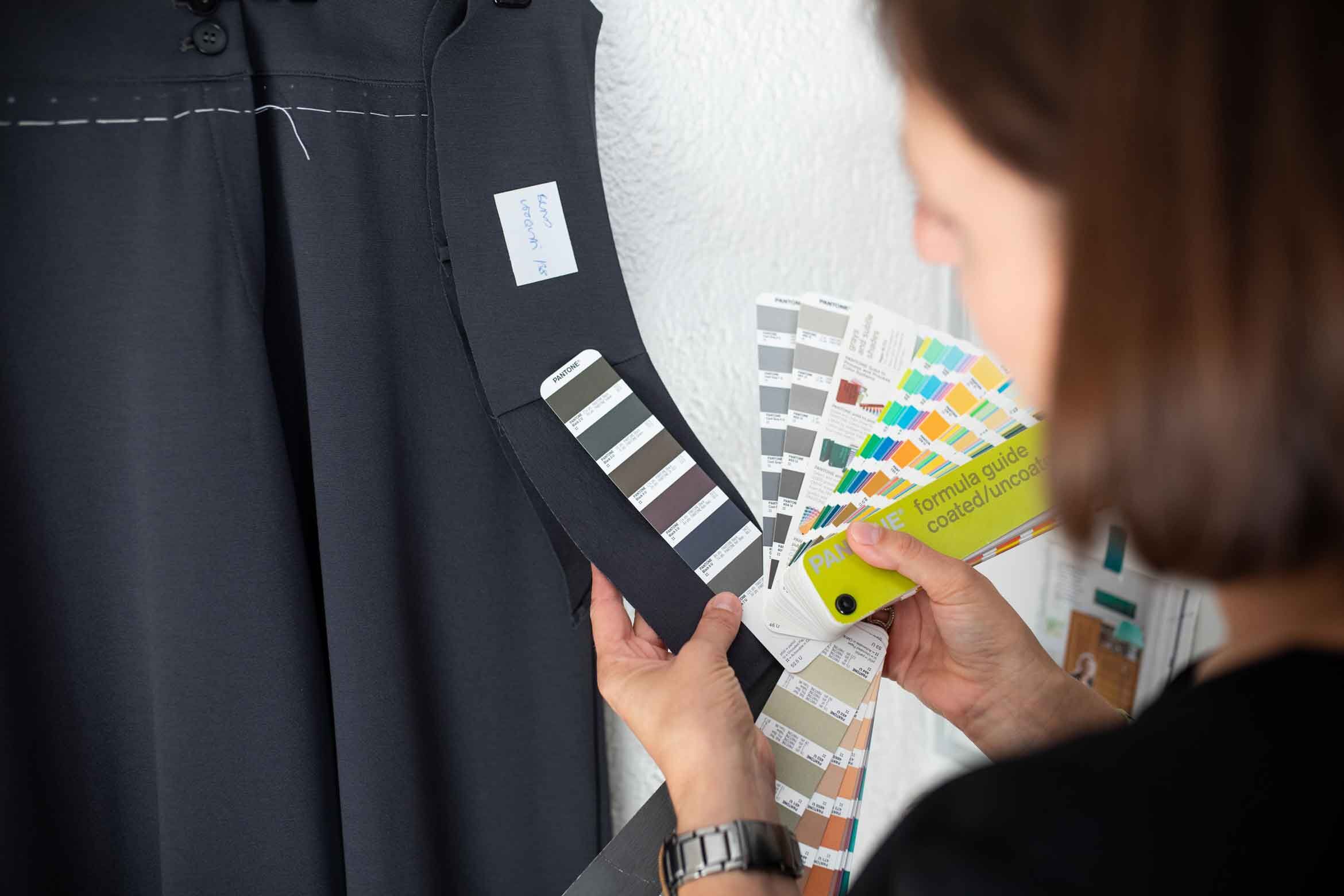
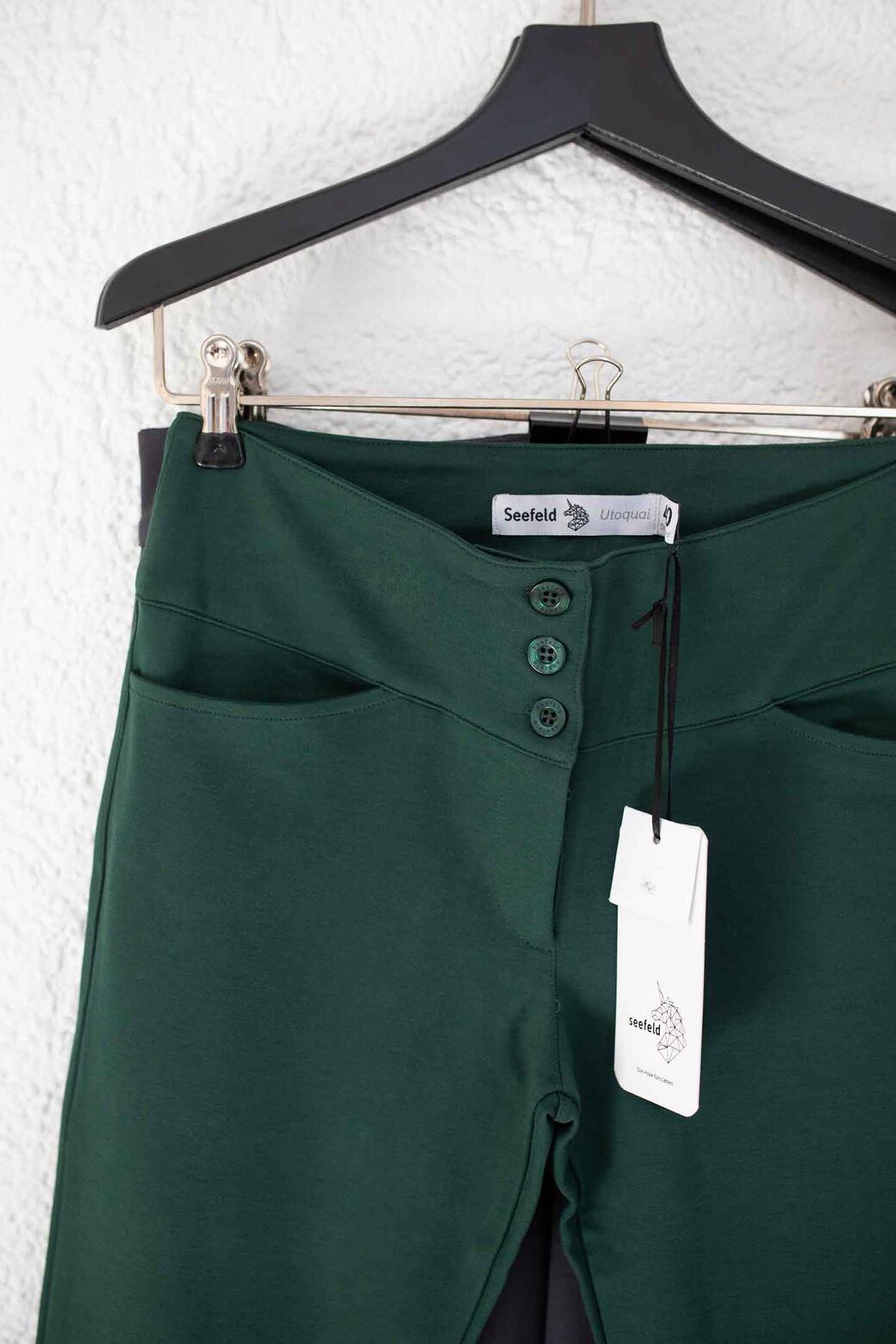
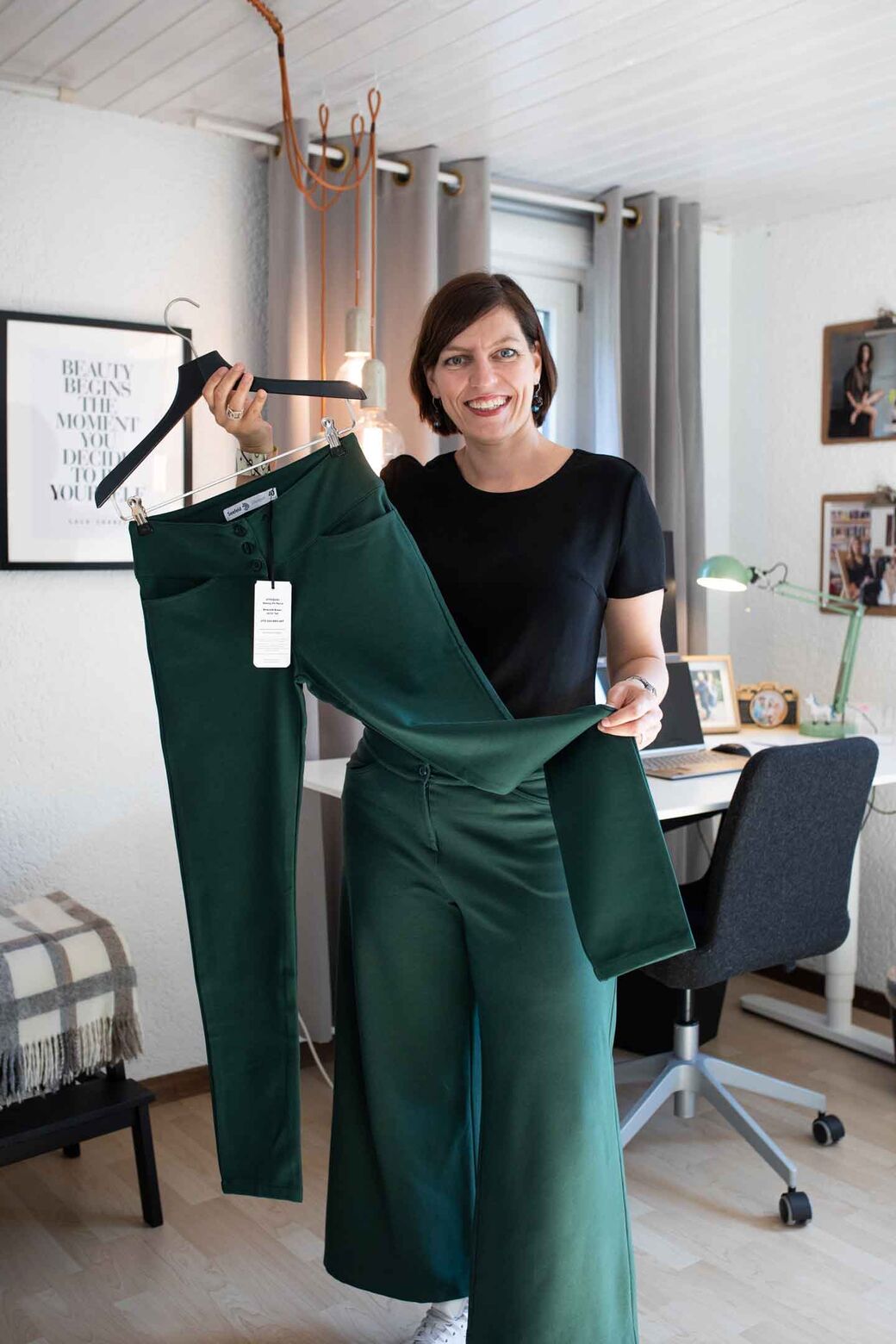
Back to your working day. What does it look like?
My husband and I take turns looking after the children. Two-hour slots have proven to be very efficient. In two hours, you can get a lot of focused work done and then you have two hours of activities with the children. We also take turns putting the children to bed. We also get a lot of support from the grandparents and my sister, who usually do something with the children once a week. My husband cooks and does the shopping while I take care of the laundry and paperwork. The days often start at 5am and end between 9pm and 10pm. We don’t have a real weekend because those days are also used for work. On the other hand, we can go on an impromptu outing with the children in the middle of the week.
Sounds like a plan.
More specifically, as things stand, my mobile phone is full of little alarms. From getting up to making snacks to my two-hour work slots – my phone constantly reminds me of what’s coming up. This is how my husband and I can coordinate our work slots without much handover time and end up with seven working hours each on a normal working day.To make full use of this time, I always make two to-do lists for the next day in the evening: one list with the business to-dos and one list with the household to-dos. This way I can also make good use of small windows of time. If the kids are playing quietly and that gives me a 15-minute window, then I can get something done right away and don’t waste time thinking about what I could do with that time. I just look at my list and choose one of the items.
‘We share the household chores and childcare equally.’
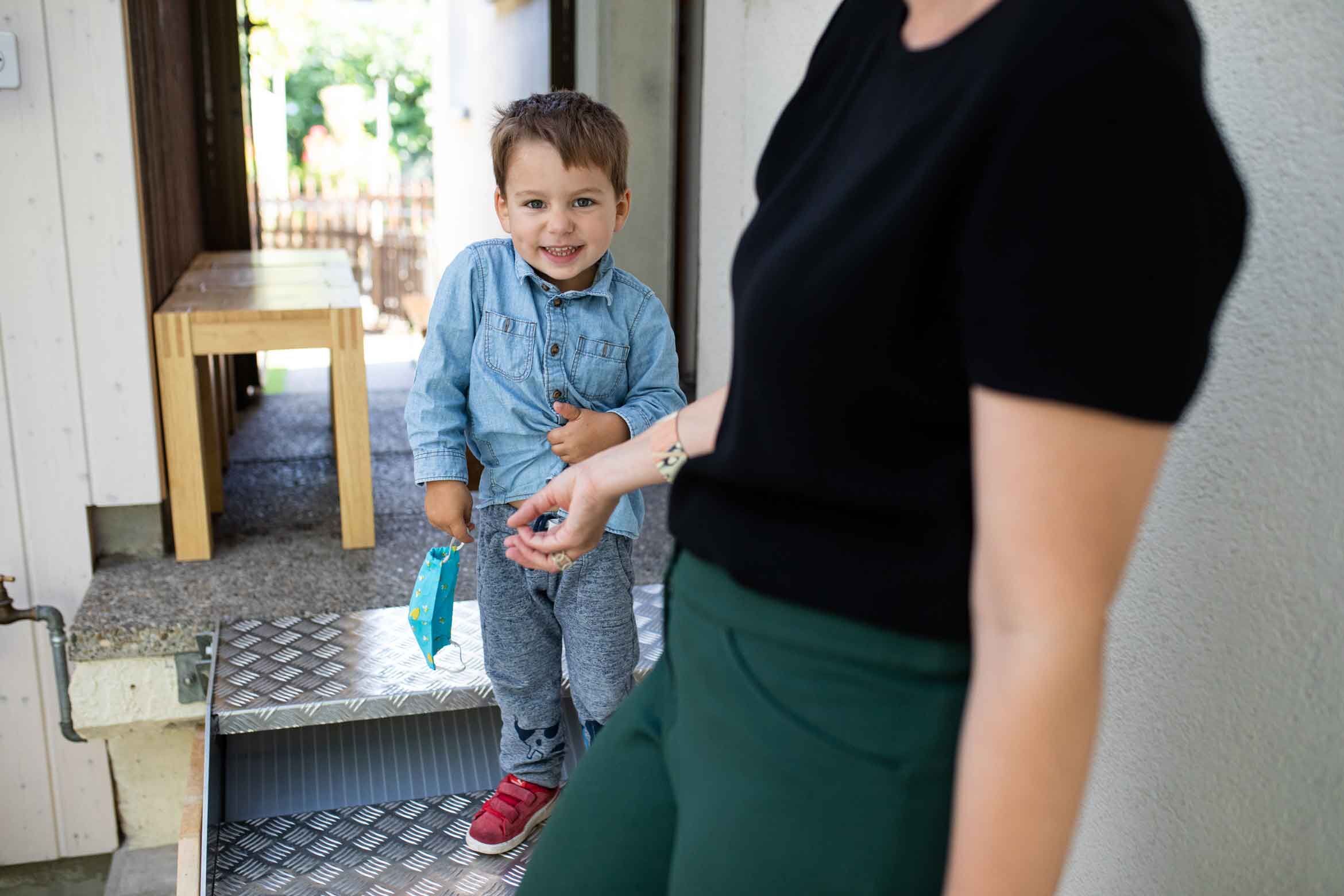
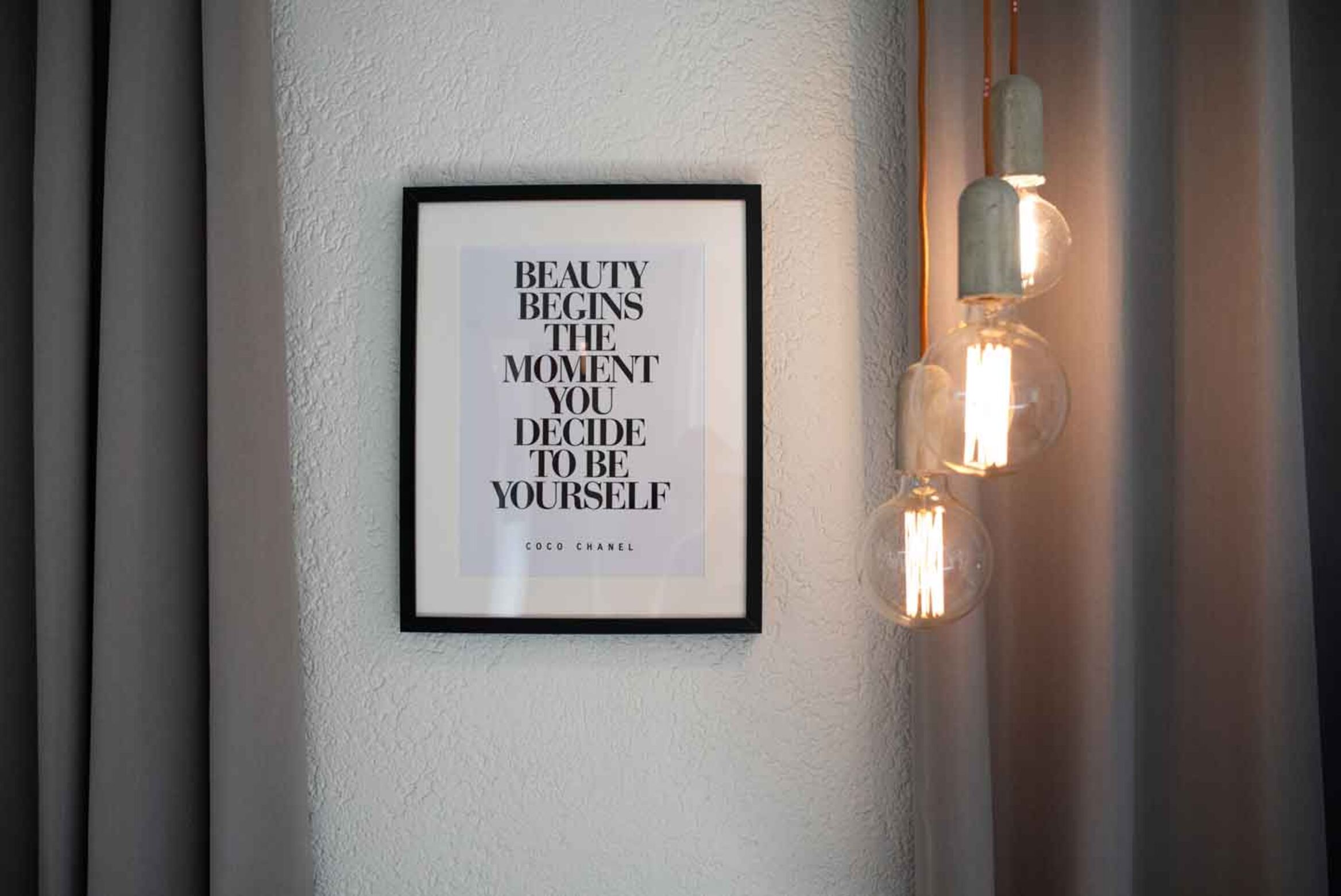
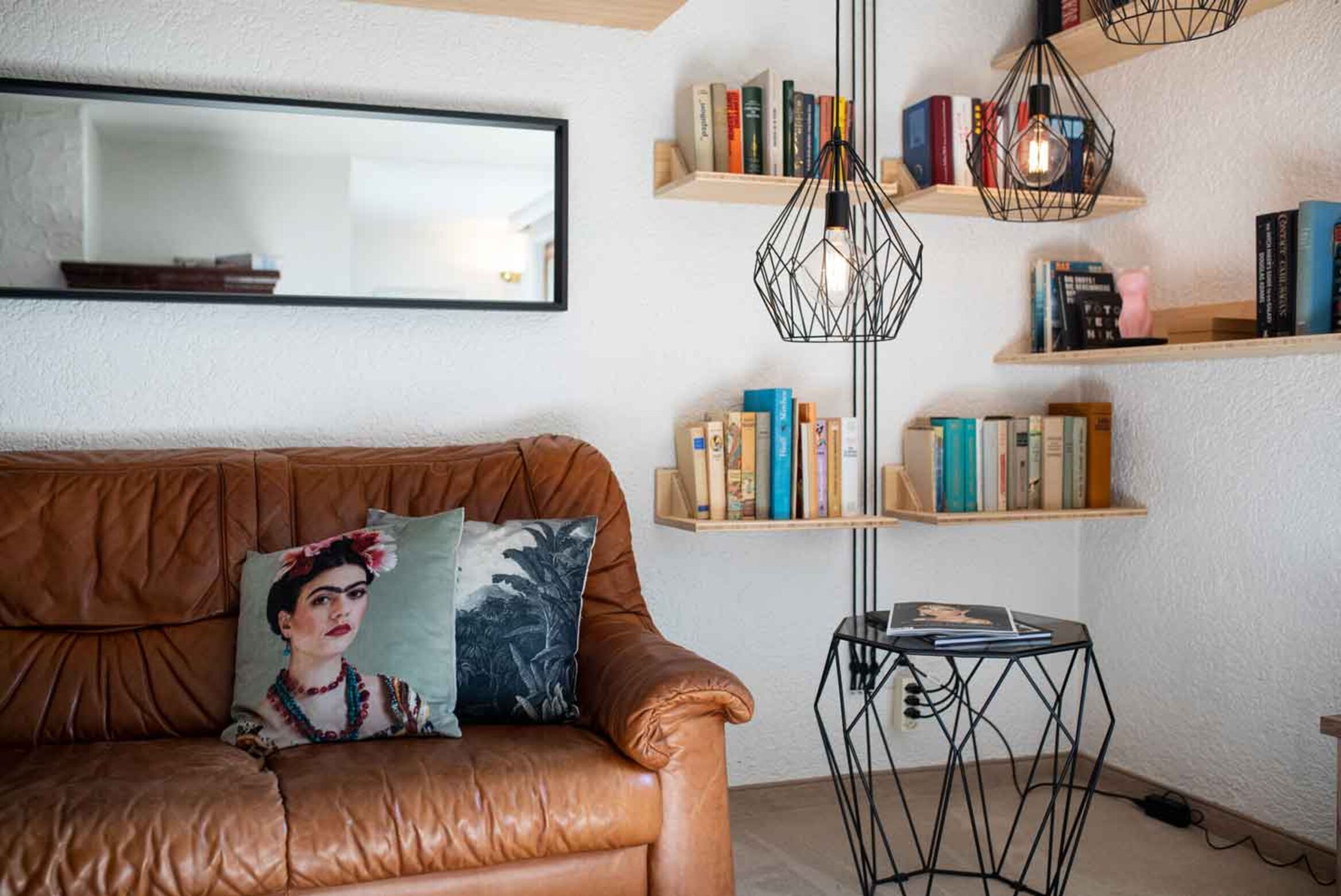
So you and your husband work side by side. Does that always work out well?
With Roland I have a real partner by my side. We share the household chores and childcare equally. It didn’t all work smoothly to start with, but it does now. And we are proud of that.
What is important to you as an entrepreneur?
To contribute to a better world. Basically, it’s about doing what we do the right way. And it’s about longevity. In our products as well as in our relationships with customers and partners. To be able to stay true to these values, we need to be effective. As a small company, we have limited resources. We have to make sure that our processes are lean and effective at the same time. This way we can afford to do what we think is important and right.
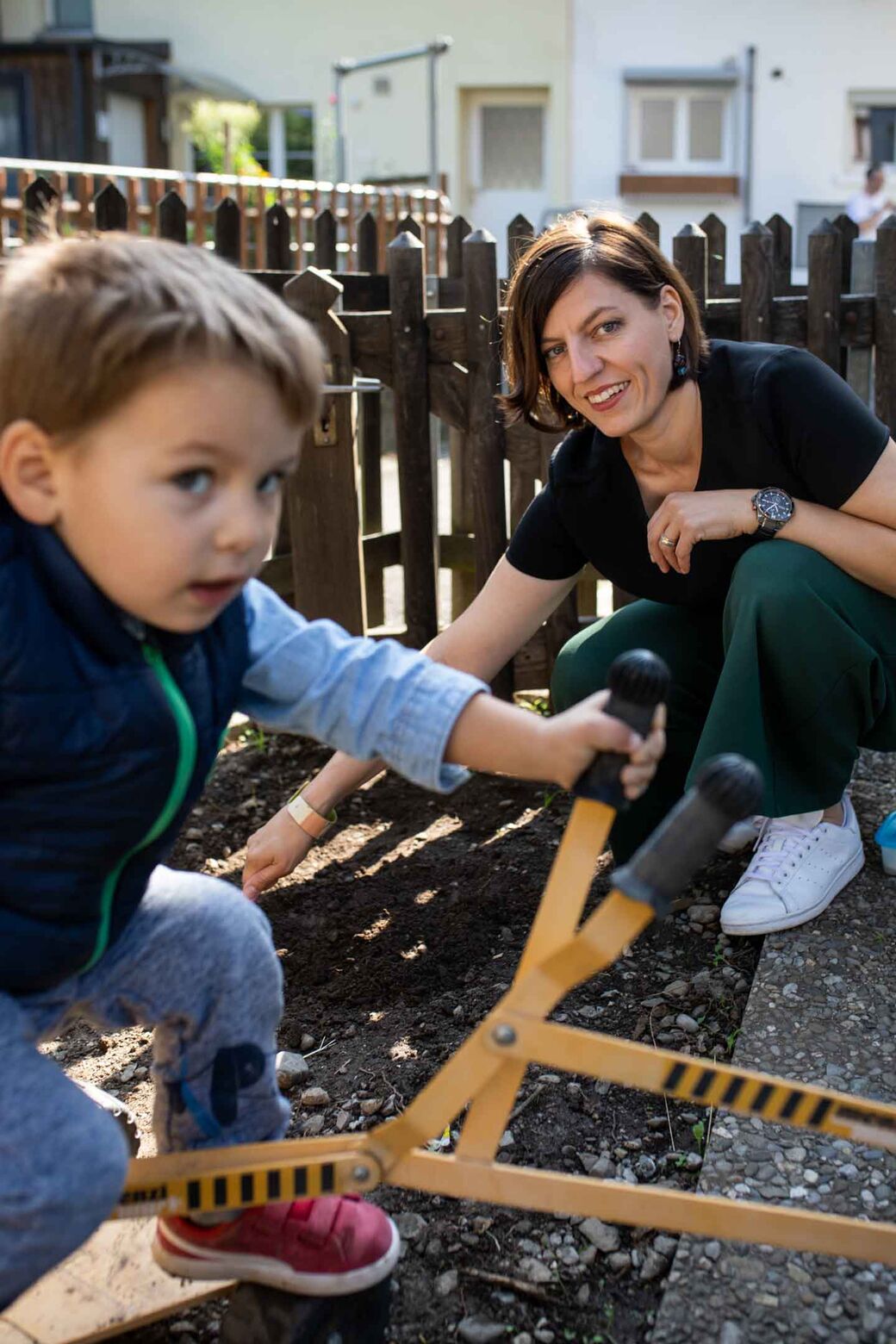
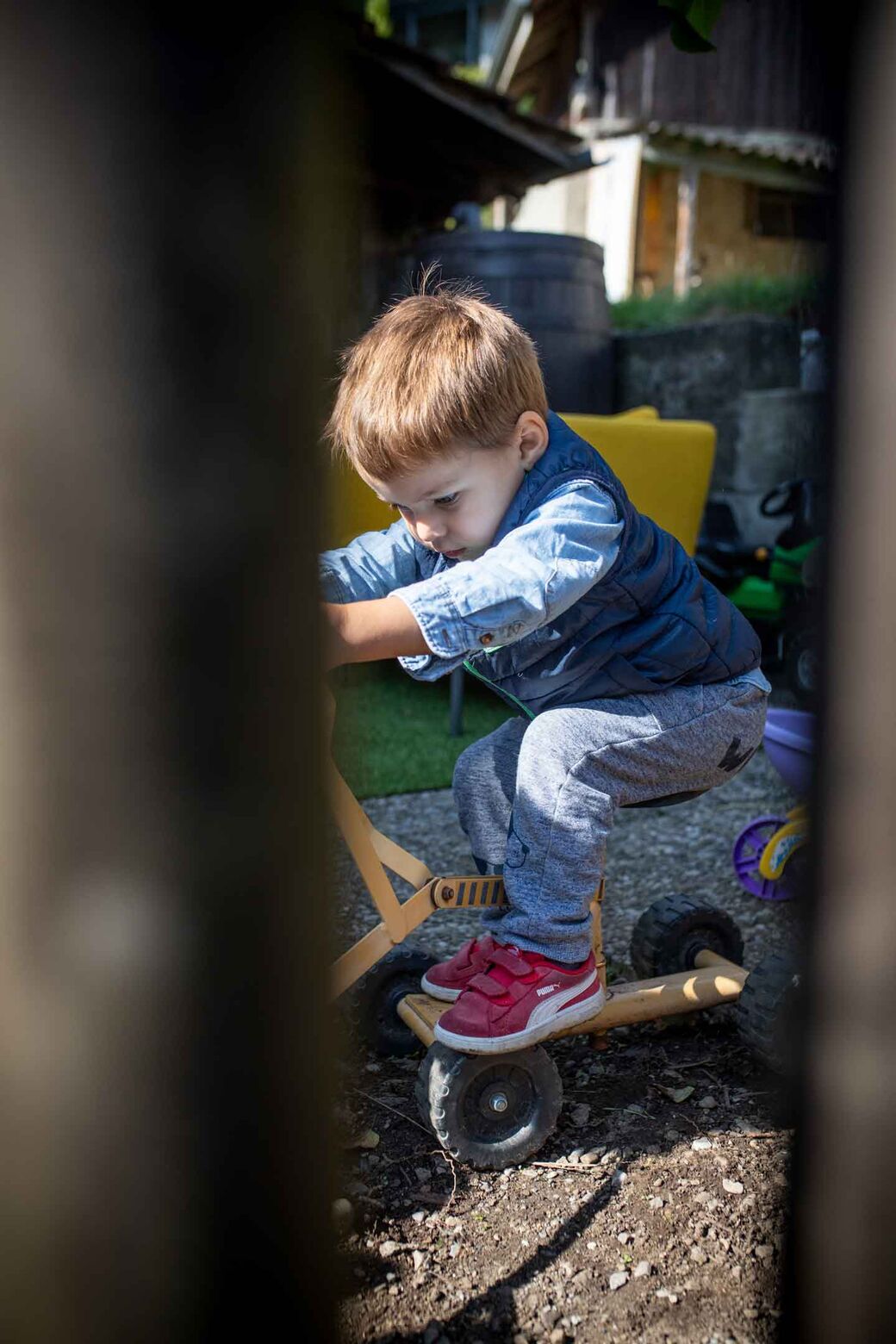
What is important to you as a mother?
That my children can grow up in a healthy environment and become happy, compassionate and self-reliant people. This requires a healthy environment, that is, healthy family dynamics, environment, education and nutrition. As parents, we try our best to create this environment for our children. But at the same time, we also accept that not everything can always be perfect, so children also learn that life has its ups and downs.
Where do you see yourself in five years?
As a mother of two primary school-age children, with a company that strives to make a positive impact on our world. And as a woman who continues to enjoy her morning coffee with her husband before the children wake up. That would be nice.
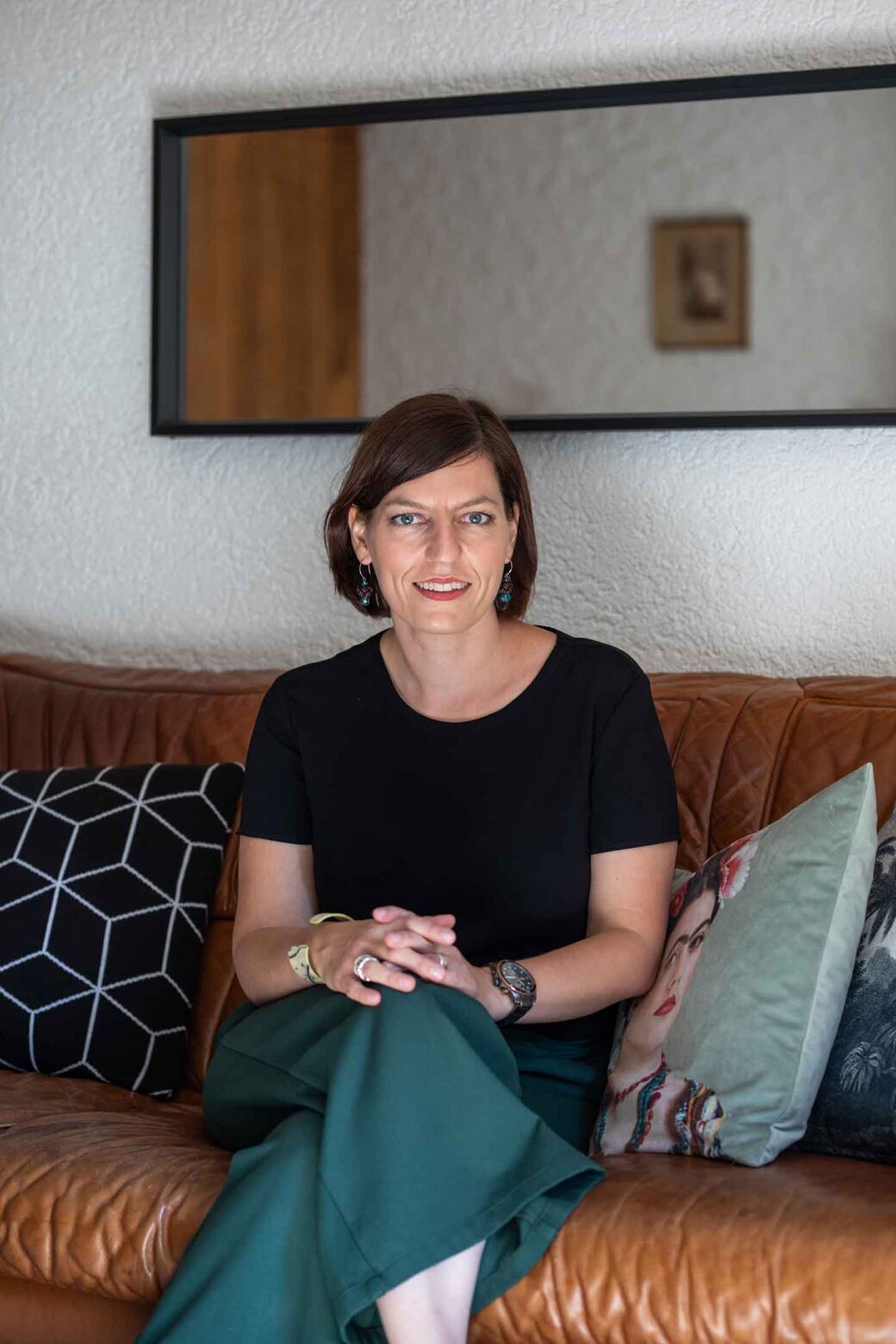
This interview was published on Tadah.ch. Sandra and her husband each work full time over seven days. Their daughter Ronja goes to kindergarten in the mornings and Milan goes to the woodland playgroup two mornings a week. The grandparents help with childcare 1–3 days a week. Both parents take turns on alternate afternoons to look after the children.
